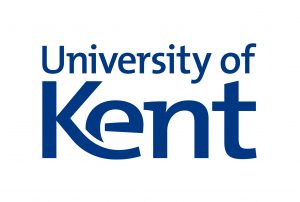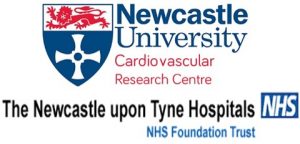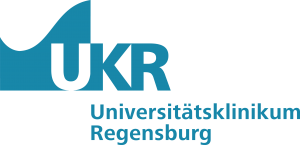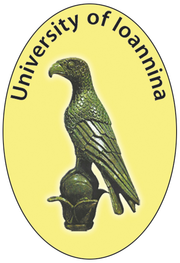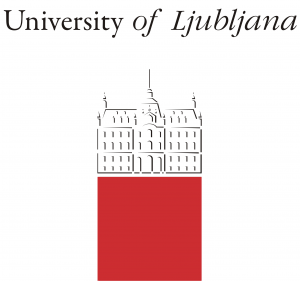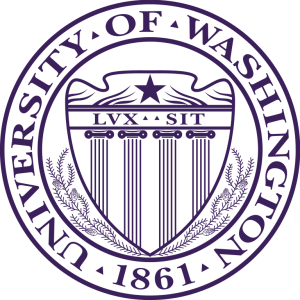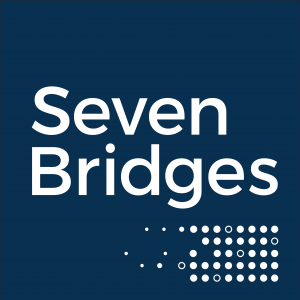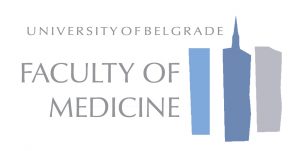Consortium
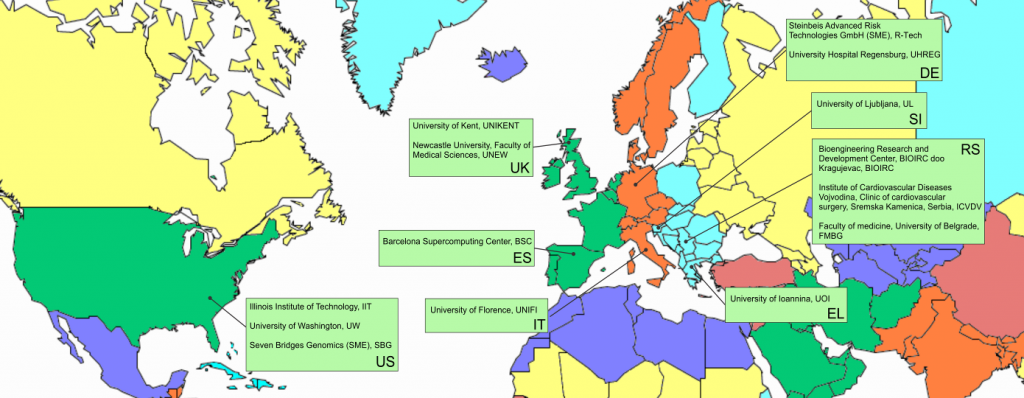
Institution profile: | |
Partner’s official name: | Bioengineering Research and Development Center– BioIRC doo |
Address: | Prvoslava Stojanovica 6, 34000 Kragujevac, Serbia |
E-mail: | bioirc@kg.ac.rs |
Phone: | +38134500088 |
Website: | www.bioirc.ac.rs |
Person responsible: | Prof. Nenad Filipovic |
Description of your entity: BIOIRC is a research centre devoted to computational modelling and software development for various problems in engineering and bioengineering. The research is largely based on the finite element method applied to solids, fluids, modeling of physical fields, multiphysics, and various coupled problems. Also, discrete particle methods, such as dissipative particle dynamics, are developed and coupled with continuum models in multiscale schemes. The solvers are accompanied by state-of-the art computer graphics as well as image processing methods and 3D medical image reconstructions. BIOIRC achieved significant results in the field of bioengineering which are prominent at the national and international level. Prof. Nenad Filipovic has rich experience in computer simulation of the cardiovascular system, muscle, bone and tissue mechanics. A large number of scientific publications and results have been issued as the result of collaboration with different national and international partners, spanning from blood flow modelling, cartilage muscle and tissue mechanics, thrombosis and plaque growth modelling, to molecular diffusion and multiscale modelling. The Centre is capable, with its hardware, software and researchers, to coordinate activities within the project and be the leader of WP1 and WP10. Also, BIOIRC will take part in platform creation and maintenance. | |
Institution profile: | |
Partner’s official name: | Illinois Institute of Technology |
Address: | 3300 SOUTH FEDERAL STREET, CHICAGO IL, United States |
E-mail: | smijailo@gmail.com |
Phone: | +617 7104774 |
Website: | http://web.iit.edu |
Person responsible: | Prof. Srboljub M. Mijailovich |
Description of your entity: Illinois Institute of Technology (http://web.iit.edu/) is a global, experiential, research university built on a tradition of engagement with the world, creating a distinctive approach to education and research, founded in 1893. The university offers a comprehensive range of undergraduate and graduate programs leading to degrees through the doctorate in six colleges and schools, and select advanced degrees at graduate campuses in the City of Chicago. The College of Science in one of the schools within IIT which has broad-ranging programs in the fields of physical sciences, life sciences and mathematics, encompassing powerful disciplines such as nanoscience, chemical biology, biophysics, biochemistry, and the new, revolutionary field of bioinformatics. Within SILICOFCM, IIT will provide the material characteristics data, modulated by mutations, for finite element analysis of whole heart function. Using the computational platform MUSICO, data obtained from protein-protein interactions and mechanics of single cardiac muscle fibres will be used for WP4, WP5, WP6 and WP7. Collectively, these data will provide the information about actin-myosin cycle and its kinetics characteristics, and thin filament regulation by Calcium, modulated by genetic mutations. More importantly, the simulations will provide information on how genetic mutations affect muscle contractility and explore what therapy may be effective for a specific patient. The second role of IIT is to provide the analysis of MRI data in constructing patient-specific fibre orientation data derived from diffusional (spectrum) MRI. The MRI data will be collected in clinical settings of the clinical partners. These mesoscale structural data will be used in multiscale FE simulations of whole heart function. | |
Institution profile: | |
Partner’s official name: | University of Kent |
Address: | The Registry Canterbury, Canterbury, Kent, United Kingdom |
E-mail: | m.a.geeves@kent.ac.uk |
Phone: | +441227827597 |
Website: | www.kent.ac.uk |
Person responsible: | Prof. Michael Geeves |
Description of your entity: The University of Kent was founded in 1965 and is a research-led higher education institution with more than 19000 students studying a diverse range of subjects. Its main campus is located in Canterbury but it also has facilities at Medway, Tonbridge, Brussels, Paris, Rome and Athens and is generally known as the UK’s European University. Research in the School of Biosciences is focused primarily on essential biological processes at the molecular and cellular level, encompassing the disciplines of biochemistry, genetics, biotechnology and biomedical research. | |
Institution profile: | |
Partner’s official name: | Newcastle University and Newcastle upon Tyne Hospitals NHS Foundation Trust |
Address: | Cardiovascular Research Centre, Institute of Cellular Medicine, Newcastle University, William Leech Building (M4.074), Farmington Place, Newcastle upon Tyne, Tyne and Wear |
E-mail: | djordje.jakovljevic@newcastle.ac.uk |
Phone: | +44 191 208 8257 |
Website: | |
Person responsible: | Dr Djordje Jakovljevic |
Description of your entity:
Newcastle University (www.ncl.ac.uk) is a public research-intensive university located in Newcastle upon Tyne in the North-East of England. The University can trace its origins to a School of Medicine and Surgery (later the College of Medicine), established in 1834, and to the College of Physical Science (later renamed Armstrong College), founded in 1871. These two colleges came to form one division of the federal University of Durham, with the Durham Colleges forming the other. The Newcastle colleges merged to form King’s College in 1937. In 1963, following an Act of Parliament, King’s College became the University of Newcastle upon Tyne, and latterly, Newcastle University. Newcastle University is a member of the Russell Group, an association of research-intensive UK universities. Newcastle University has one of the largest EU research portfolios in the UK. Newcastle attracts over 20,000 students from more than 120 different countries. Teaching and research are delivered in 24 academic schools and 40 research institutes and research centres, spread across three Faculties: the Faculty of Humanities and Social Sciences; the Faculty of Medical Sciences; and the Faculty of Science, Agriculture and Engineering. The university offers around 175 full-time undergraduate degree programmes in a wide range of subject areas spanning arts, sciences, engineering and medicine, together with approximately 340 postgraduate taught and research programmes across a range of disciplines. The Faculty of Medical Sciences of Newcastle University (www.ncl.ac.uk/medicalsciences) is at the forefront of the Translational Medicine revolution. Its principal aim is to translate scientific advances made in the Faculties at Newcastle University into direct benefits for patients being treated in our partner NHS Trusts. This strategy has already led to major advances in the healthcare of patients within the region, as well as nationally and internationally. The strong links between Newcastle University and The Newcastle upon Tyne Hospitals NHS Foundation Trust are highlighted through the £15m award of an NIHR Specialist Biomedical Centre in Ageing and Age-Related Disease. This centre brings together the Institutes for Ageing, Cellular Medicine, Genetics and Neuroscience. Newcastle University is ranked 16th (out of 154) in the UK for research power, according to the influential publication, Research Fortnight, and is in the UK’s top 12 for research power in science and engineering. It is ranked 54th in the world for Medical Sciences. In the latest 2014 Research Assessment Exercise (RAE), Newcastle was ranked 8th in the UK overall for Medical Sciences combined in terms of research power, and in the top 5 for both hospital- and laboratory-based clinical subjects, with two-thirds of its output classified as world leading (4*) or internationally excellent (3*) in the broad thematic areas of ageing, chronic disease, genetics and stem cells. Newcastle University Medical School currently has over 260 staff, including 87 academic members, 120 researchers, 37 technical staff and 160 postgraduate students. Through Newcastle Biomedicine, we have a close working relationship with areas of clinical specialty within Newcastle-upon-Tyne Hospitals NHS Foundation Trust with over half of our academic staff being clinicians. In the last 3 years we have been awarded more than £38m in research funding from Research Councils, Charities, Government and the European Union. Institutes of Cellular and Genetic Medicine (http://www.ncl.ac.uk/icm/; http://www.ncl.ac.uk/igm) were established in 2001 as two of seven Newcastle University research institutes within the Faculty of Medical Sciences and Newcastle Biomedicine. Institutes aim to foster high-quality research in many disease areas that impact on patient care and pursue answers to a diverse range of research questions through cross-disciplinary groups. Institute of Cellular and Genetic Medicine encompasse a total of over 320 staff and postgraduate students who, together with almost 150 Northern Genetics Service NHS staff, occupy purpose-built accommodation on the main campus and within the International Centre for Life. As a result of series major infrastructural awards, notably from the Wellcome Trust, Biotechnology and Biological Sciences Research Council and the development agency One North East, the Institute of Genetic Medicine is extremely well equipped for carrying out molecular genetic, cell biology and developmental biology research. Newcastle upon Tyne Hospitals NHS Foundation Trust / Freeman Hospital is one of the UK largest Heart Transplant and Heart Failure Centers. The Freeman Hospital’s Cardiopulmonary Transplant Service was established over 20 years ago. We performed our first heart transplant in 1985 and our first lung transplant in 1987. We have since performed almost 800 heart transplants, including over 140 in children, and over 600 lung or heart and lung transplants. Over the last 3 years we have performed more cardiopulmonary transplants than anywhere else in the UK and we are widely regarded as the premier lung transplant service in the country. Our Transplant Service is one of the most experienced centres in the world and is widely regarded as providing the UK’s premier transplant service with outstanding clinical outcomes that exceed international standards. Our experts pioneered the development of double lung and non-heart beating lung transplant surgery nationally. Our clinicians are also foremost in the field of severe heart failure, cardiomyopathies and heart assisted devices for both adults and children and we are able to discharge patients with a VAD (ventricular assisted device) due to our unique VAD at home service, enabling them to go home rather than stay in hospital to await the availability of a donor heart. Newcastle Magnetic Resonance Centre (http://www.ncl.ac.uk/magres/) is at the forefront in development and application of novel, non-invasive magnetic resonance methodology to solve important problems of human health. The centre provides over 900m2 of laboratory space equipped with a high field strength, state-of-the-art two 3T magnetic resonance scanners and full facilities for clinical MR research and associated technical developments. The centre represents an investment of more than £6.9 million. Clinical Research Facility (http://www.ncl.ac.uk/crf), that houses the Cardiovascular Physiology Laboratory, is a purpose built state-of-the-art facility which represents a collaboration between Newcastle University and Newcastle upon Tyne Hospitals NHS Foundation Trust and is located in the Leazes Wing of the Royal Victoria Infirmary. The facility is supported by a core grant from the National Institute of Health Research. | |
Institution profile: | |
Partner’s official name: | Unit Cardiomiopatie Azienda Ospedaliero-Universitaria Careggi (University Hospital) |
Address: | Viale Pieraccini 1 , 50134 Firenze , Italy |
E-mail: | |
Phone: | +39 0557495138 |
Website: | https://www.unifi.it/changelang-it.html |
Person responsible: | Iacopo Olivotto, MD, Head, Cardiomyopathy Unit |
Description of your entity:
The University of Florence can trace its origins to the Studium, which was established in 1321, and is one of the largest organizations for research and higher education in Italy with over 1900 tenured teaching staff and researchers, over 1600 permanent technical/administrative staff and language assistants and over 55000 students enrolled. The University consists of 24 departments. A large part of the yearly budget is allocated to scientific research. The University of Florence is one of the largest and most productive public research institutions in Italy and has close relationships with other research institutions. The University participates in national and international research programmes in which significant scientific results are achieved and the knowledge tranferred. Several research structures and facilities comprising interdepartmental and inter-unve sity centres, as well as specialized research units are available for the researchers working at the University of Florence. A large University Hospital (Careggi) that includes a referral center for cardiomyopathies following more than one thousand patients is associated to the Medical School of the University of Florence. The University Hospital: Careggi University Hospital is a large community-based multi-specialty hospital in Florence, Italy. For over 80 years this institution has served the Florence metropolitan area (population 1 million), as well as the surrounding geographical region of Tuscany (total population of about 3.5 million). It constitutes the largest and most established center for the management of patients with familial cardiomyopathies in this geographic area, as part of a multidisciplinary Cardiothoracovascular department, led by Prof. Niccolò Marchionni. Careggi has developed a high-volume cardiac surgery and interventional cardiology program, as well as a state-of-the-art genetic department for Next Generation Sequencing-based diagnostics. The Cardiomyopathy Unit was constituted in 2016, taking over the former Regional Referral Centre for Cardiomyopathies, which had been active in Florence for almost 40 years. The Unit runs a large volume of outpatient clinic, dealing with patients affected by hypertrophic, dilated, arrhythmogenic and restrictive cardiomyopathies, but also familial arrhythmias, cardiac amyloidosis, Anderson-Fabry disease and Marfan syndrome. Together with its partners in the Department of Experimental and Clinical Medicine and Neurology, Pharmacology and Children’s Health of the University of Florence (the latter based at the nearby Meyer Pediatric Hospital), the Unit has an outstanding research record, including basic science, with a focus on translational approach to the mechanisms for several cardiovascular diseases and in the genetics of cardiomyopathies. In clinical science, the Unit has participated and participates in observational studies such as HCMR and others funded by Italian Ministry of Health and other national donors, and has actively promoted and designed the main international randomized clinical trials on hypertrophic cardiomyopathy, such as RESTYLE-HCM, LIBERTY-HCM and EXPLORER HCM. The Unit is one of the funding members of the international consortium of the Sarcomere Human Registry (ShaRe). The Unit Cardiomiopatie at Careggi university hospital will be involved in the clinical study for retrospective and prospective analysis of HCM patients in SilicoFCM (WP3). | |
Institution profile: | |
Partner’s official name: | Institute of Cardiovascular Diseases, Vojvodina – Sremska Kamenica |
Address: | Put doktora Goldmana 4, 21204 Sremska Kamenica |
E-mail: | sekretarijat@ikvbv.ns.ac.rs |
Phone: | +38121/480 57 55 |
Website: | www.ikvbv.ns.ac.rs |
Person responsible: | Prof. Aleksandar Redžek, MD, PhD |
Description of your entity:
Vojvodina Institute of Cardiovascular Diseases from Sremska Kamenica is a public university hospital consisting of two clinics: Clinic of Cardiology and Clinic of Cardiovascular Surgery. Our hospital is government funded, non-profitable university hospital. The Institute is functioning as a health, teaching and scientific-research centre. It is a part of the University of Novi Sad and functions as the teaching basis for the Faculty of Medicine. The Clinic of Cardiology is equipped for providing the following medical services: a) Non-invasive Services: echocardiography, stress-echo examination, contrast echocardiography, stress test, holter ECG monitoring, 24-hour ambulatory blood pressure monitoring with ECG, Carotids Doppler Test, Arterial Doppler of Upper or Lower Extremities, tilt test and etc. b) Invasive Services: Diagnostic hemodynamic procedures (coronarography, angiography, bulbography, sinevalvulography, ventriculography, endomyocardial biopsy, graftography), percutaneous coronary interventions („balloon dilatation” and intra-coronary stent implantation), the vena cava filter implantation, pericardiocentesis, electrophysiology, the pacemaker implantation, CRT implantation (the pacemaker for cardiac resynchronization therapy), ICD implantation, radiofrequency ablation, hypothermia, and, CT examinations. The Clinic of Cardiovascular Surgery consists of 3 ORs, ICU and pre and post intensive care departments. With 225 hospital beds, ICVDV serves as a city hospital and health provider for the entire territory of Vojvodina covering the population of around 2.5 million people. The ICVDV constitutes a staff of around 600, including 100 physicians and 15 professors. ICVDV maintains an extensive range of research facilities and equipment spread across research disciplines and departments. Department for non-invasive diagnostics is equipped with state-of-the-art ECG and Echo devices of various manufacturers and a significant patient-load. This Department is capable of telemetric monitoring of patients. R&D department, together with IT sector, is dedicated to Biomedical Research -Modelling, as well as integration of various patient-related and procedure-related data into one-of-a-kind database (comprised of more than a quarter of a million patient records) and its further exploitation through various data mining techniques. ICVDV is also equipped with cutting edge dual source CT scanner (Siemens SOMATOM). | |
Institution profile: | |
Partner’s official name: | University Hospital Regensburg, Department of Internal Medicine II (Cardiology, Pneumology, and Intensive Care) |
Address: | Franz-Josef-Strauss-Allee 11, 93053 Regensburg, Germany |
E-mail: | lars.maier@ukr.de |
Phone: | +49 941 944-7201 |
Website: | www.uniklinikum-regensburg.de |
Person responsible: | Prof. Dr. med. Lars Maier, MD Head of Department |
Description of your entity:
The University Hospital Regensburg is the only tertiary health care provider in Eastern Bavaria, a region with about 2 million inhabitants. With a case-mix-index of approximately 2.00 Regensburg is the leading German university hospital and thus, the most efficient tertiary health care provider in Germany. The interaction of health care, research and teaching guarantees the best possible treatment according to the latest scientific knowledge. Approximately 4 100 staff members work at the university hospital and about 1 900 medical and dental students are educated. The current capacity is 833 beds, 52 day clinic treatment places with more than 125 500 out-patients and 31 500 in-patients. The Department of Internal Medicine II (Cardiology, Pneumology, and Intensive Care Medicine) at the University Hospital Regensburg has 97 beds with more than 8 900 out-patients and 5 500 in-patients. The department has a long-standing history of basic, clinical and translational research focusing on hypertrophy and heart failure as well as arrhythmias. In basic science, mechanisms for several cardiovascular diseases are being studied with a focus on translational approaches. In clinical science, several proof-of-concept studies are performed as well as a participation in large scale clinical trials. Recently, hypertrophic cardiomyopathy (RESTYLE trial, LIBERTY trial) and diastolic heart failure (RALI-DHF trial) are a focus of our research. In addition to all routine cardiological diagnostic tools including echocardiography and MRI, cutting edge therapies (TAVI and MitraClip) are being performed. UHREG will have a role in the clinical study for retrospective and prospective analysis of HCM patients (WP3). | |
Institution profile: | |
Partner’s official name: | PANEPISTIMIO IOANNINON |
Address: | University of Ioannina, Ioannina, Greece |
E-mail: | medlab.greece@gmail.com |
Phone: | +302651008820 |
Website: | |
Person responsible: | Prof. Dimitrios I. Fotiadis |
Description of your entity:
Scientific and technical work in the SILICOFCM project is undertaken by the Unit of Medical Technology & Intelligent Information Systems (MedLab) – http://medlab.cs.uoi.gr/. MedLab is a highly innovative and self-contained research unit that resides at the Dept. of Material Science & Engineering of the University of Ioannina. The unit is strongly activated in the fields of Biomedical Engineering and development of Intelligent Information systems. It has an internationally acknowledged excellence in conducting high quality scientific research and developing innovative Information Technology (IT) applications, products and services. Most of the Unit activities are based on international collaborations in the framework of nationally and European funded projects (FP5, FP6, FP7, Horizon 2020). MedLab’s research activities cover a variety of subjects and they are classified into the following domains: Biomedical Research, Automated Diagnosis – Processing of Biomedical Signals/Images, Development of Wearable Devices, Decision Support Systems, Bioinformatics, Multi-scale Predictive modelling, Data mining, and Big Data. The unit is coordinated by Prof. Dimitrios I. Fotiadis, who is Professor of Biomedical Engineering at the Dept. of Materials Science and Engineering of the University of Ioannina and staffed with qualified scientists, researchers and other IT personnel. The University of Ioannina (www.uoi.gr/en) was founded in 1964 in Ioannina, Epirus, in the North Western part of Greece. Today the University has 17 departments with over 500 faculty members, 13,500 undergraduate students and more than 3,000 graduate students (MSc and PhD). The University has established a quality management system that is in conformance with the International Management System Standard ISO 9001:2000, as well as the Greek Management Efficiency Standard, with a scope of “Project Management of Research and Development of Technological and Other Related Programs and Activities”. | |
Institution profile: | |
Partner’s official name: | Barcelona Supercomputing Center – Centro Nacional de Supercomputación |
Address: | Jordi Girona street, 29 |
E-mail: | info@bsc.es |
Phone: | (+34) 93 413 77 16 |
Website: | www.bsc.es |
Person responsible: | Dr. Mariano Vázquez |
Description of your entity: Barcelona Supercomputing Center– Centro Nacional de Supercomputación was established in 2005. It is the Spanish national supercomputing facility. Its mission is to research, develop and manage information technologies in order to facilitate scientific progress by combining expertise covering a wide range of High Performance Computing areas. Following this approach, BSC has brought together a critical mass of first-rate researchers, high performance computing experts and cutting-edge supercomputing technologies in order to foster multidisciplinary scientific collaboration and innovation. The centre currently has over 500 staff from 41 countries. BSC has a unique combination of expertise, from hardware design up to programming models, from simulations to visualization, from life science to engineering. Working together, BSC researchers develop HPC-based simulation tools capable of running efficiently in large supercomputers. The Computer Applications in Science and Engineering Department (CASE) has created several simulation tools with a wide range of application domains. In particular, Biomechanics is one of the most active ones, with more than 20 researchers working on it. In this project, the CASE department experts will provide a strong contribution to the workplan development. BSC has a unique combination of expertise, from hardware design up to programming models, from simulations to visualization, from life science to engineering. Working together, BSC researchers develop HPC-based simulation tools capable of running efficiently in large supercomputers. The application department (CASE) creates several simulation tools with a wide range of application domains. In particular, Biomechanics is one of the most active ones, with more than 20 researchers working on it. In this project, the CASE department expert will use the BSC’s in-house multi-physics code Alya to simulate cardiac mechanics in supercomputing environments. | |
Institution profile: | |
Partner’s official name: | Univerza v Ljubljani |
Address: | Kongresni trg 12, Ljubljana, Slovenia |
E-mail: | |
Phone: | 386 1 2418 532 |
Website: | |
Person responsible: | Prof. dr. Igor Papič, rector |
Description of your entity: University of Ljubljana is a public autonomous educational, scientific research and artistic institution of higher education with a very rich tradition. It is the oldest and the biggest university in Slovenia. It was established in 1919 and it encompasses 26 full members (3 art academies and 23 faculties) and 3 associated members (National University Library, University of Ljubljana Central Technical Library, University of Ljubljana Innovation-Development Institute). UL ranks among the top 500 universities according to: Times THSE-QS Ranking (500-600), Shanghai Academic Ranking of World Universities (400-500), Webometrics Ranking of World universities (top 200), URAP – University Ranking by Academic Performance (284). The UL covers all ISCED areas in the first and second cycle study programs and leads the way in some technology and research fields (cognitive science, physics, nanotechnologies, environmental sciences, biomedicine etc). In the 1st cycle it offers 128 university, 32 higher professional and 7 long-cycle master study programmes. In the 2nd cycle it offers 215 university programmes and 13 joint study programmes, and 21 doctoral study programmes in the 3rd cycle. On the European scale, by number of students, UL ranks among the largest higher education institutions with 45.607 students enrolled in the year 2013/2014, 5.893 employees and 9.904 graduates with an annual budget of approximately 300 mio €. UL is very active in national research and education programmes. In 2013 UL had 286 research groups with over 3000 registered researchers (548 ESR), 175 research programmes, 228 basic and 88 applied research projects, 27 post-doc projects, 39 targeted research projects (CRP) and 7 technological platforms. UL is also very active in international R&D programmes: in the period 2007-2013 it was involved as partnering or coordinating institution in more than 750 European projects, among them 160 FP7 projects and 2 ERC grants. In 2013 UL cooperates in 421 running international projects, including 108 FP7 projects and more than 310 other research and educational projects financed by EU Community programmes. | |
Institution profile: | |
Partner’s official name: | Steinbeis Advanced Risk Technologies (R-Tech) |
Address: | Fangelsbachstr. 14, 70178 Stuttgart, Germany |
E-mail: | info@risk-technologies.com |
Phone: | +49 711 41004 131 |
Website: | www.risk-technologies.com |
Person responsible: | Aleksandar Jovanovic |
Description of your entity: Steinbeis Advanced Risk Technologies (R-TECH) is one of the transfer centres belonging to the Steinbeis Foundation (http://www.stw.de/), established in 1971. The Foundation and its 1000+ Transfer Centres in 50+ countries offer global services in technology and knowledge transfer. Steinbeis Advanced Risk Technologies Group founded in 2001 deals with multiple aspects of risks, risk engineering and risk management primarily in the areas of: petro chemical and process plants, power plants, material technologies, especially advanced/new material technologies, new emerging technologies (e.g. CO2, H2, nanotechnologies…). Main topics of risks dealt with are: risks in/of innovation (e.g. risks of unexpected side effects), risk of non-performance or performance below expectations (e.g. risks of system or component failures), risk of adverse/unexpected effects and impacts (e.g. on public health and/or environment), risks over the life-cycle of products and technologies (e.g. unexpected problems in decommissioning or recycling phase), project risks, especially in innovation, R&D and new technologies oriented projects. | |
Institution profile: | |
Partner’s official name: | University of Washington |
Address: | Brooklyn Avenue NE 4333, Seattle WA, United States |
E-mail: | osp@uw.edu |
Phone: | 206-543-4043 |
Website: | www.washington.edu |
Person responsible: | Prof. Michael Regnier |
Description of your entity:
University of Washington (http://www.washington.edu/) is a public flagship university that was founded in 1861. The UW is a member of the Association of American Universities and is consistently ranked among the top 15 universities in the world by a variety of international publications. UW was recently ranked as the #1 most innovation university in the world and has a long tradition of translational research and application of engineering approaches to medical problems. The Department of Bioengineering is part of both the School of Medicine and the College of Engineering, and has historically been a leader in translationally innovative research and development. The Bioengineering department plays a leading role in the South Lake Union (SLU) Medical Research Campus, which includes the Center for Cardiovascular Biology (CCB), the Institute for Stem Cell and Regenerative Medicine (ISCRM) and the Heart Regeneration Program (HRP). There are multiple Medicine and Engineering departments represented on the SLU campus, performing in interdisciplinary research teams. Dr. Regnier’s research group is housed in the CCB and he is a member of these institutions that provide resources for the study of cardiovascular disease and development of novel therapeutic approaches in diagnosis and/or treatments. | |
Institution profile: | |
Partner’s official name: | Seven Bridges Genomics Inc. |
Address: | 1 Main St, 5th Floor, Suite 500, Cambridge, MA 02142, United States of America |
E-mail: | team@sbgenomics.com |
Phone: | +1 (617) 294-6582 |
Website: | www.sevenbridges.com |
Person responsible: | Dr. Ricarda Gaentzsch |
Description of your entity:
Seven Bridges is the biomedical data analysis company accelerating breakthroughs in genomics research for cancer, drug development and precision medicine. The scalable, cloud-based Seven Bridges Platform empowers rapid, collaborative analysis of millions of genomes in concert with other forms of biomedical data. Thousands of researchers in government, biotech, pharmaceutical and academic labs use Seven Bridges, including two of the largest genomics projects in the world: U.S. National Cancer Institute’s Cancer Genomics Cloud, and the Million Veteran Program. As the NIH’s only commercial Trusted Partner, Seven Bridges authenticates and authorizes access to one of the world’s largest cancer genomics dataset. Named one of the world’s smartest companies by MIT Technology Review, and a three-time Bio-IT World Best of Show winner, Seven Bridges has offices in Cambridge, Mass.; Belgrade; London; Istanbul; Ankara; and San Francisco. | |
Institution profile: | |
Partner’s official name: | Faculty of Medicine, University of Belgrade (FMBG) |
Address: | Koste Todorovića 8, 11000 Belgrade, Serbia |
E-mail: | arsen.ristic@med.bg.ac.rs |
Phone: | +381 63 337 472 |
Website: | www.mfub.bg.ac.rs |
Person responsible: | Dr. Arsen Ristić – Professor of Internal Medicine – Cardiology |
Description of your entity:
Faculty of Medicine is one of the oldest faculties of the University of Belgrade. It was founded on December 9, 1920. Almost a century later, with approximately five hundred fifty undergraduate students obtaining MD degree, 30 students obtaining M.Sc. degree and around 170 of them PhD degree per year, the Faculty of Medicine is the leading institution for medical educational in Serbia and a significant player in regional terms. Numerical data show that about 40% of Serbian medical students are taught at the Faculty, that two-thirds of clinical specialists and subspecialists diplomas are from the Faculty, and that over 60% of biomedical research projects funded by Ministry of Science are carried out at the Faculty. Research is based on collaboration between basic and clinical researchers. This integrative approach is enabling transfer of knowledge obtained in basic disciplines to clinical practice, including new diagnostics and therapeutic procedures. Many laboratories at the Faculty of Medicine are specialized in experimental research in various scientific disciplines. They strongly collaborate with affiliated teaching hospitals and clinics, where clinical research is carried out. In the last decade Faculty provided funds, with the support of the Ministry of education, science and technological development of the Republic of Serbia, for purchasing new equipment and adapting the existing labs that significantly improved the research infrastructure. Professors of our Faculty coordinate more than 50% of all national projects in the field of medical sciences, funded by the Ministry of education of the RS. Besides national, Faculty of Medicine participates in many international research and educational projects (HORIZON2020, COST, Erasmus+, Fogarty etc.). The basic requirement for academic career development is a sound publication record, as well as teaching excellence which stems from the translation of scientific knowledge into lecturing. A survey of the Web of Science indicates over 560 papers published by researchers from the Faculty in the academic 2017/2018, with cumulative impact factor more than 2085. | |



